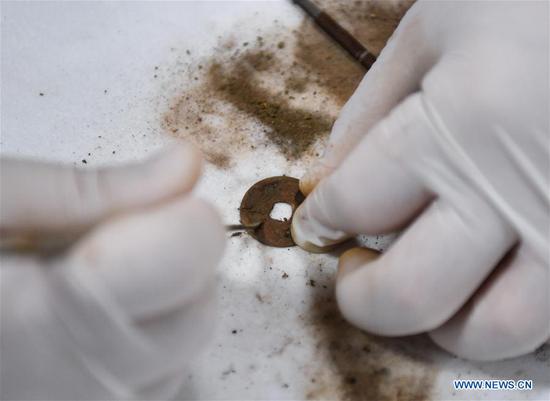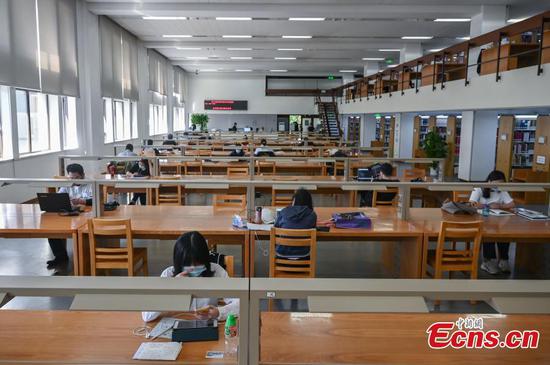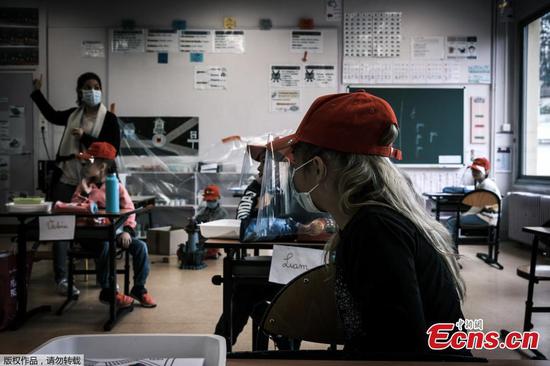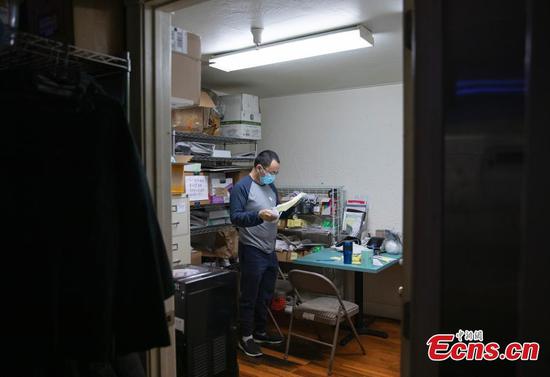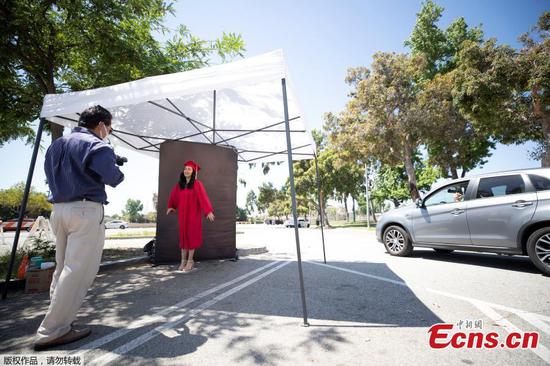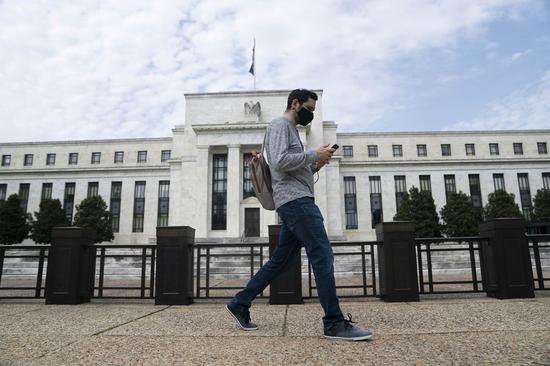
A man wearing a mask walks past the U.S. Federal Reserve building in Washington D.C., the United States, on April 29, 2020. (Xinhua/Liu Jie)
U.S. Federal Reserve Chairman Jerome Powell on Wednesday said the COVID-19 crisis raises "long-term concerns," warning that a prolonged recession and weak recovery could lead to an extended period of low productivity growth and stagnant incomes.
"The scope and speed of this downturn are without modern precedent, significantly worse than any recession since World War II," Powell said in prepared remarks webcast by Washington-based think tank Peterson Institute for International Economics (PIIE).
The central bank chief said that while the economic response has been "both timely and appropriately large," it may not be the final chapter, given that the path ahead is both "highly uncertain" and subject to "significant downside risks."
Powell noted the record shows that deeper and longer recessions can leave behind "lasting damage" to the productive capacity of the economy.
"Avoidable household and business insolvencies can weigh on growth for years to come," the Fed chairman said. "Long stretches of unemployment can damage or end workers' careers as their skills lose value and professional networks dry up, and leave families in greater debt."
"The loss of thousands of small- and medium-sized businesses across the country would destroy the life's work and family legacy of many business and community leaders and limit the strength of the recovery when it comes," he continued.
"A prolonged recession and weak recovery could also discourage business investment and expansion, further limiting the resurgence of jobs as well as the growth of capital stock and the pace of technological advancement," Powell said.
Noting that the result could be an extended period of low productivity growth and stagnant incomes, the Fed chairman said more policy measures might be needed to support the recovery and avoid prolonged recession.
"At the Fed, we will continue to use our tools to their fullest until the crisis has passed and the economic recovery is well under way," Powell said, while reiterating that the Fed has lending powers, not spending powers.
"Additional fiscal support could be costly, but worth it if it helps avoid long-term economic damage and leaves us with a stronger recovery," he said.









